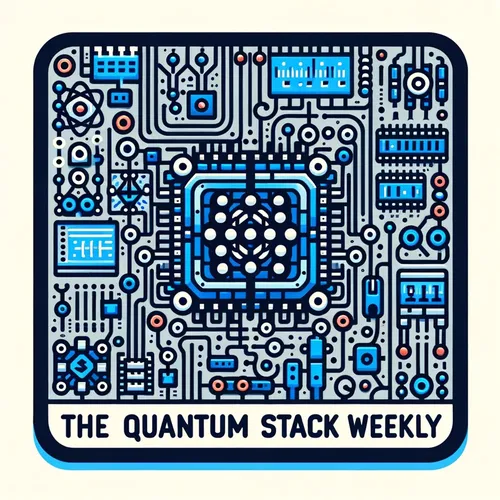Quantum Leap: Aalto Universitys Millisecond Milestone Redefines Qubit Coherence
- Author
- Quiet. Please
- Published
- Mon 28 Jul 2025
- Episode Link
- https://www.spreaker.com/episode/quantum-leap-aalto-universitys-millisecond-milestone-redefines-qubit-coherence--67153382
This is your The Quantum Stack Weekly podcast.
Picture this: just 24 hours ago, scientists at Aalto University in Finland unveiled a leap that’s nothing short of seismic for quantum computing. They achieved a transmon qubit coherence time—how long quantum information survives before fading into the noise—that blew past every prior published record, reaching a full millisecond, with a median durability half as long. Why does that single millisecond matter? Because in the quantum world, every microsecond is a brief glint of possibility—a window in which calculations straddle reality and probability before they collapse into something useful. I’m Leo, Learning Enhanced Operator, and today on The Quantum Stack Weekly, we’re dissecting one of the biggest breakthroughs in quantum hardware we’ve seen all year.
Now, I live and breathe superconducting circuits and the indecipherable hum of dilution refrigerators. In the lab, watching for quantum coherence is like waiting for a firefly to linger in your hand before slipping away—exciting but ephemeral. Until this week, coherence was our biggest limitation; most qubits “forgot” their state long before you could finish complex computations. The Aalto team, led by Mikko Tuokkola under the guidance of Dr. Yoshiki Sunada—who’s now at Stanford—managed to stretch that memory, and did so in a way that can be reproduced by groups around the globe. Published in Nature Communications, and already sparking buzz from MIT to Tokyo, this pushes us closer to reliable, fault-tolerant quantum computing by granting us more time to perform error-free quantum logic.
Let’s dial in deeper. A transmon qubit is a superconducting circuit, built from aluminium and sapphire, chilled until it enters the quantum regime. What makes this result so game-changing is that previously, the best echo coherence times hovered under 0.6 milliseconds. With a full millisecond now within reach, quantum processors can string together longer, more ambitious computations. Fewer errors slip in, so we can spend less of our precious qubit-resources correcting mistakes, and more on pushing the boundaries—simulating molecules, optimizing logistics, even rethinking cryptography.
This comes as the field is electrified with recent breakthroughs: just days ago, a team in Oxford achieved an unprecedentedly low error rate—one error for every 6.7 million operations—using trapped ion qubits. Meanwhile, Los Alamos has reimagined quantum AI by sidestepping neural networks in favor of Gaussian process-based models, and Harvard unveiled chip-scale photon entanglement with metasurfaces, literally flattening entire quantum-optical networks onto a sheet thinner than a strand of hair.
But today, it’s the Finnish breakthrough that holds my attention. Quantum computing’s progress mirrors today’s rapidly shifting headlines—where every small step, every extra millisecond, is a giant stride for humanity’s ability to learn and predict. As we unshackle ourselves from the barriers of decoherence and error, just imagine the parallel: more time, less noise—wouldn’t that be nice in our world, too?
If you have questions or want me to spotlight your favorite quantum quandaries on air, just email [email protected]. Don’t forget to subscribe to The Quantum Stack Weekly. This has been a Quiet Please Production—learn more at quietplease.ai. Thanks for tuning in.
For more http://www.quietplease.ai
Get the best deals https://amzn.to/3ODvOta
